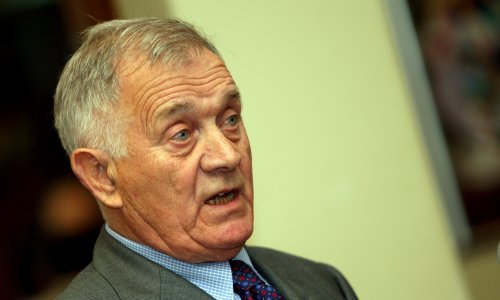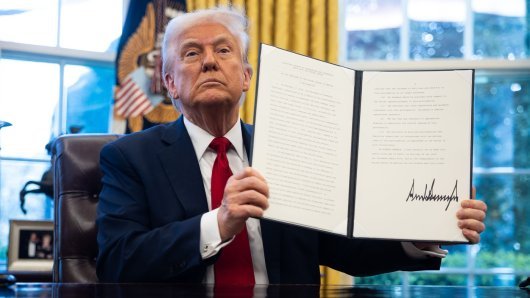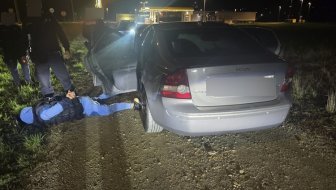After on 15 April 2011 the Trial Chamber of the International Criminal Tribunal for the former Yugoslavia (ICTY) sentenced Croatian generals Ante Gotovina and Mladen Markac to 24 and 18 years respectively for war crimes, the UN tribunal's Appeals Chamber in this case has announced the delivery of its final verdict at a hearing set for 16 November in The Hague.
Following the announcement that the Appeals Chamber will give its final ruling on 16 November, the defence team for General Gotovina stated that "Gotovina Defence awaits the Appeals Judgement like everyone else. We trust that the Appeals Chamber will ensure that justice is done." This statement was made by lawyer Luka Misetic on his Twitter profile.
Lawyer Goran Mikulicic, who represents General Markac, was not available for comment on Friday.
The Hague tribunal sentenced Gotovina and Markac for involvement in a joint criminal enterprise aimed at forcibly and permanently removing the Serb population from occupied parts of Croatia during and after the summer 1995 Operation Storm. The tribunal acquitted General Ivan Cermak and ordered his immediate release on 15 April 2011.
The Trial Chamber said at the verdict-delivering hearing that it found Gotovina and Markac guilty of eight of the indictment's nine counts - including persecution, deportation, plunder, destruction, murder, inhumane acts and cruel treatment - while acquitting them of forcible transfer.
The trial chamber found that Croatian General Gotovina, with his actions, considerably contributed to a joint criminal enterprise, that he took part in it and intended his actions to contribute to its goals. The trial chamber found that Gotovina commanded all units of the Split Military District as well as all added units and that the military police were subordinate to him in their regular tasks. The trial chamber concluded that Gotovina issued commands for attacks on Knin, Gracac, Benkovac and Obrovac, which the chamber found were unlawful, and that the commands for unlawful attacks on civilians constituted a significant contribution to the joint criminal enterprise.
According to the trial chamber, one of the key pieces of evidence of the existence of the joint criminal enterprise was the meeting between the then Croatian President Franjo Tudjman and military commanders on Brijuni Isles on 31 July 1995, a few days before Operation Storm. Also the chamber found that the people at the meeting considered the importance of the departure of Krajina Serbs as an important result and component of the upcoming attack.
The trial chamber concluded that Gotovina also failed to prevent crimes and punish the perpetrators. It also found Gotovina guilty of indiscriminate shelling.
The trial chamber found General Markac was a member of the said joint criminal enterprise, that he had complete control over the special police, that he issued a command to shell Gracac, that he knew about the involvement of his subordinates in destruction, plunder and murder, and that he did nothing to find the perpetrators, punish them or stop further crimes.
The trial chamber found that Markac attended a meeting on Brijuni Isles on 31 July 1995 and contributed to the planning and preparation of Operation Storm, and that he issued a command to the special police to shell Gracac the following August 4-5, which constituted an unlawful attack on civilians and civilian structures. The chamber concluded that, with his actions and omissions, Markac created a feeling of impunity among his subordinates and that this encouraged the commission of crimes against Krajina Serbs and their property.
The defence team representing Croatian general Gotovina has said at one of appeal hearings before the ICTY that the Trial Chamber had arbitrarily determined a 200 metre range of error for the legality of artillery shelling and that the rule was invented so that the prosecution would not have to prove that the targets of artillery strikes were indeed civilian targets.
The defence lawyers said at that hearing that if the Appeals Chamber dismissed the 200 metre rule it should also dismiss the defined artillery impact sites. If the 200 metre rule falls, then all points of the judgement must also fall, lawyer Misetic said on that occasion. The defence said that the conclusion regarding the existence of the joint criminal enterprise, which according to the the Trial Chamber's ruling was agreed at a meeting of the Croatian political and military leadership on the island of Brijuni, was based on the conclusion about illegal artillery strikes and not based on what had been said at that meeting.
The defence teams of the two generals also proposed the introduction of new evidence during the appellate proceedings , however, the Appeals Chamber, overturned their motion, assessing that similar evidence had been presented to a sufficient extent during the trial.
A piece of the new evidence which the defence teams wanted to present were minutes of the meetings of the Yugoslav and Serbian military leadership in Belgrade during Operation Storm which corroborated the statements that mass exodus of Serbs from Croatia had been prompted by the decision to that effect made by local Serb leaders and not by shelling launched by the Croatian forces.
The request by the ICTY Appeals Chamber this summer to the prosecutors to find evidence for the alternative modes of liability for the two generals was met with surprise.
Considering that "additional briefing on the potential for convictions under the alternative modes of liability with respect to Gotovina and Markac would assist in a just resolution of their appeals," the UN tribunal's appeals chamber on 20 July ordered the prosecution to file by 10 August submissions in which it can explain whether it believes that the two generals might be held responsible on the basis of superior responsibility or as aiders and abettors in the event that they are not found liable for unlawful artillery attacks or are not found to be members of a joint criminal enterprise.
Croatian legal experts treated this order from the Appeals Chamber as a sign that the Appeals Chamber does not believe in the thesis of joint criminal enterprise and is trying to find other ways to establish the two generals' responsibility.
In the meantime the defence team representing Gotovina has responded that the Trial Chamber's judgement provides no grounds for the Appeals Chamber to deliver a guilty verdict against Gotovina for aiding and abetting a joint criminal enterprise or for his command responsibility, calling on the Appeals Chamber to acquit the Croatian general of all responsibility if it finds that he was not a member of the joint criminal enterprise (JCE) or that, as a commander, he was not responsible for war crimes committed during and after the 1995 Croatian military offensive known as Operation Storm,
"The Trial Chamber made none of the findings necessary to convict Appellant for aiding and abetting or command responsibility. If the Appeals Chamber finds that Gotovina was not JCE member and not liable for unlawful artillery attacks, it should overturn his conviction and enter a Judgement of not guilty on all counts," the defence said in a brief filed on August 31, responding to the prosecution's claim that Gotovina can be found guilty either of command responsibility or of aiding and abetting the joint criminal enterprise. The defence also said in its appeal that the Trial Chamber committed an error of law in concluding that the Croatian artillery attacks were unlawful.
The defence for Markac has claimed that the guilty verdict on the basis of alternative modes of liability can have no grounds. "Croatian General Mladen Markac cannot be convicted on alternative bases of liability in appeals proceedings because the Trial Chamber ruling provides no basis for it, his defence before the Tribunal said in a response to the prosecution's submission that Markac could be found guilty either of superior responsibility or aiding and abetting in a joint criminal enterprise (JCE).
To assume that "is like positing that a house will remain standing even when all the supporting walls are removed," the Markac defence said in the brief calling on the Appeals Chamber to reject the prosecution's submissions as unfounded.
Gotovina has been in the Scheveningen detention centre of the UN tribunal since December 2005, and Markac since March 2004.




































